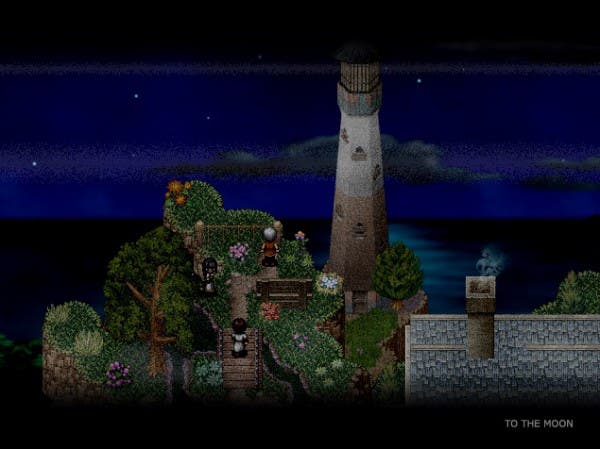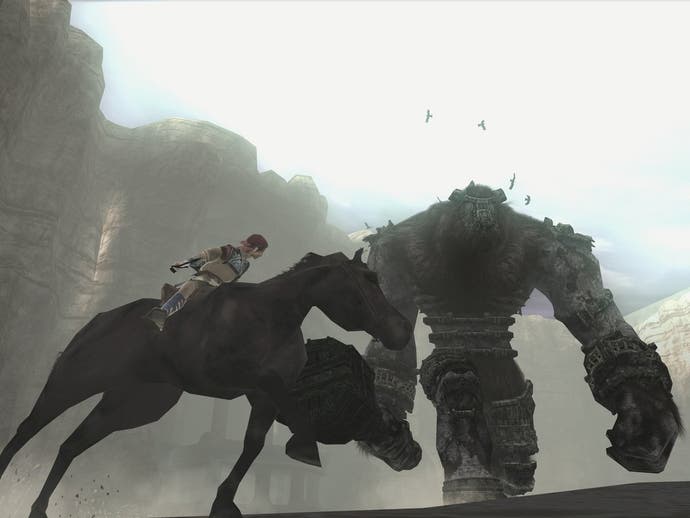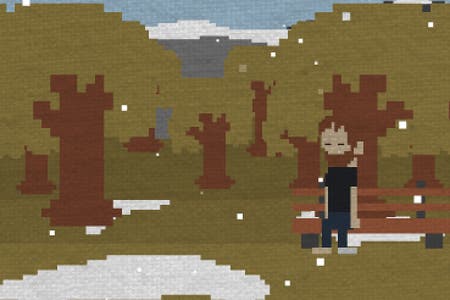Saturday Soapbox: The Feelbad Factor
Why more games should be making us feel bad.
I like to spend a lot of my free time being miserable, and I don't think I'm entirely alone in that regard. I'm drawn towards sad things, whether that's wallowing in the autumnal sludge of shoegazing music or getting lost in the downbeat melodrama of filmmakers such as Sirk or Ozu.
It's not a strange or unknown phenomenon, either. A great deal of good art is touched with melancholy, so it goes, and a look through the frontrunners in the recently published new edition of Sight & Sound's Greatest Films of All Time will tell you as much. Between the psychosexual drama of Vertigo, the bleakly realist Tokyo Story or the anti-heroics of The Searchers there's barely a smile to be had (although all those straight faces are admittedly balanced out by Sunrise's brilliant drunken pig skit).
Games can do melancholy, and some of their defining moments have come when that's been the prevailing mood. The death of Aerith, for example, or the strange sadness that coats so much of Ocarina of Time before being made a part of the very fabric of Majora's Mask.

But even in these moments it's an emotion that's kept to the periphery, a deep blue wallpaper to the mechanics of pleasure and reward at the centre of the experience. In Final Fantasy 7 the numbers game carries on regardless as Cloud fights his way to victory, and in Zelda the simple satisfaction of a puzzle solved and a dungeon conquered remains at the core.
"Games can create emotions way stronger than passive media ever could," Yager's Jorg Friedrich said in a talk at last week's GDC Europe. I think he's got a perfectly valid point, but sadly I can't yet name you a moment in any game that's quite as powerful as anything I've seen in the cinema. The problem, it seems to me, is that games are only ever intent on provoking those emotions when they're at their most passive.
Friedrich's smart enough to have done something about that in his position as design lead on Spec Ops: The Line, a game that, in his own words, uses "the full spectrum of emotional colours". Guilt's the one predominant colour in Spec Ops' palette - and it's laid on with thick, oily strokes - though it's worked in well through the game's creeping subversion of third-person shooter conventions.
Spec Ops is a game that goes out of its way to make you feel bad, and to make you feel implicit in the grim carnage and chaos that's a part of every third-person shooter. There's a duality there - at its heart, this is still a game about the thrill of the headshot - but it at least charges its gunplay with a darker emotion rather than relegating the heart-wringing to an awkward sideshow.

Guilt, though, has become as much a part of gaming's paintbox as the simple pleasure of progress. It's there in some of the more memorable questlines of Fallout or Oblivion, or in the decisions you face throughout Mass Effect or BioShock. It's about time that 'spectrum of emotional colours' was broadened on a more regular basis.
Indies have been doing this for a while, of course. Famously there's Jason Rohrer's Passage, a pixelated journey through the lives of a couple that, in its sweet melancholy and fatalism, feels a little like an 8-bit Ozu - and there's plenty of others besides.
Every Day The Same Dream undercuts the drudgery of a nine-to-five existence with a handful of surreal moments that only really serve to highlight how bloody sad this living thing can be, and it went on to inspire a personal favourite, One Chance.
Here you're a scientist who's found a cure to cancer - the only setback being that it's discovered all too late that the cure also has the power to obliterate every living cell on earth. And so you spend your last six days toiling in a gloomy funk, choosing whether to see out the apocalypse by taking your daughter for a walk in a browning park or to work through the chaos in an attempt to find a cure.
The sense of bleak consequence is heightened by the fact that you're only ever allowed to play the game once, with there being no option to replay through the story (unless, of course, you want to get smart and disallow cookies, in which case you're free to see the apocalypse play out as many times as you desire).
It's no surprise that such bleakness hasn't worked its way into the mainstream - sadness, after all, doesn't really sell - but it's a shame that it's not at least a part of the make-up of more popular games.

Some have dabbled with introducing more complex emotions into their mechanics - Shenmue, with its long afternoons of aimless wandering waiting for something to happen, toyed brilliantly with the boredom of a teenage existence, while more recently Red Dead Redemption worked the quiet complacency of domestic life into its play to excellent effect. Both those games' power to linger, for me, comes from their willingness to evoke emotions that go beyond a simple thrill.
When a blockbuster game dares to play with more complex feelings, they've often elevated themselves above their competition. Much of Dark Souls' power comes not just from the reward of player skill and its smart, slow sense of progression but from the strange, hostile and infinitely complex world that it conjures, and the sense it evokes of being a wanderer lost amidst a backdrop of suffering. It is not, by any stretch, a feel-good experience.
And then there's the master of melancholy, Shadow of the Colossus, a game whose greatness comes from how it works its downbeat mood into every second of its play. The exploration is infused with a sense of hopeless isolation, and the violence it asks of you goes beyond provoking a feeling of guilt - each thrust of the sword into the skull of a wandering beast becomes charged with a certain sadness.
It's enough to elevate what's essentially a boss rush set in an open world into an experience that, towards the climax, is almost devastating. Games, quite often, are toys, and I wouldn't want that playful, essential vein to ever end - but I think it's worthwhile that every now and then they try to be something else, too.

